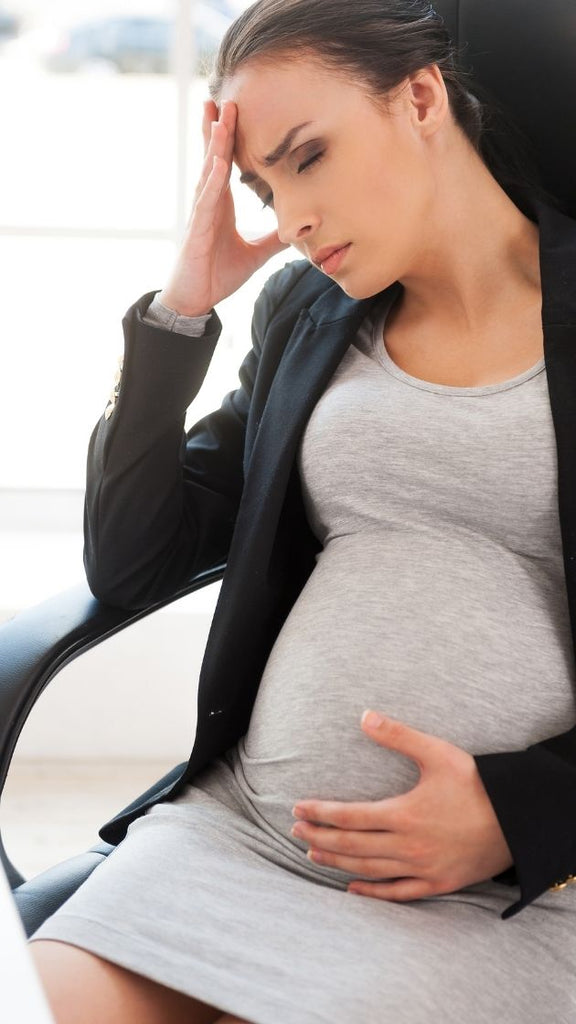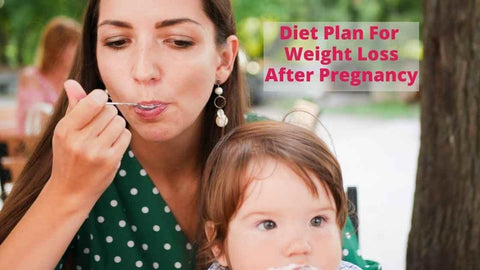Exhaustion in Pregnancy
Sometimes pregnancy can be a tiresome period. After all, you’re growing a tiny human in your body. You know it ladies - only we women have the power to do this extraordinary task.

During these nine months, you might not be able to take a good night's sleep, especially during the third trimester.
The headache, fatigue, back pain, and discomfort from a large belly can be exhausted. But this is not the only reason you are feeling annoyed or exhausted.
When does the exhaustion start?
Fatigue is one of the first signs of early pregnancy. After conception and implantation, pregnancy hormones constantly affect your physical and mental condition.

They might affect your physical appearance, sleep patterns, brain condition, mood, and metabolism. It usually disappears in the second trimester; the most comfortable time of all the three trimesters.
As you enter your third trimester, you experience extreme exhaustion and fatigue again.
Why do you feel exhausted during the first trimester?
 As you already know, growing a baby is not an easy task. The fluctuating hormones and physical and emotional changes lower your energy level drastically making you feel exhausted.
As you already know, growing a baby is not an easy task. The fluctuating hormones and physical and emotional changes lower your energy level drastically making you feel exhausted.
During the first trimester, your body might react to:
- Lower blood sugar
- Lower blood pressure
- Increased blood flow
- Digestion issues
- Morning sickness
- Increased estrogen and progesterone level
- Stress
- Anxiety
- Frequent urination
- Heartburn
- Shooting sensation or pain in the back, hip, or pelvic area
- Disrupted sleep
In addition to all these pregnancy symptoms, you also have to deal with:
Placenta Creation
During pregnancy, your body has to make an additional organ called the placenta. Its function is to provide nutrients and oxygen to your baby. Growing a placenta takes a lot of energy and makes you feel exhausted.
Hormonal Fluctuation
Hormonal changes may also affect your mood and overall condition. They support your pregnancy and increase milk production. They can also make you feel exhausted during pregnancy.
Physical changes
Physical changes in pregnancy are another factor causing exhaustion and fatigue. Your high metabolism, increased heart rate, blood sugar, and blood pressure can make you exhausted.
You may feel a bit relieved as your second trimester starts. The second trimester is usually considered to be the easiest trimester. During this trimester, morning sickness usually fades away and you might feel a rush of energy in your body.
Why do you feel exhausted during the third trimester?
The third trimester has its negatives and positives. As your due date gets closer you feel more tired.
The following are some of the reasons, you feel exhausted in your third trimester of pregnancy:
Your baby bump
The growing baby bump carries a lot of weight and it adds pressure on your back and pelvis area. Carrying a lot of extra weight in just a few months can also cause back pain and make you feel tired.

The stress of becoming a mother
Some mothers feel stressed out when they realize that soon they are going to have a baby. It’s a great responsibility. And it’s normal to feel a bit of stress but you can also feel exhausted from all the stress. Discuss how you feel with your partner or friend to ease the tension. Having a baby is a beautiful gift of nature and you are going to love it.
Pregnancy insomnia
Pregnancy insomnia is another reason that you are all stressed out. Many pregnant women cannot sleep properly at night due to acidity or restless leg syndrome. When you don’t get enough sleep you may feel exhausted the whole day.
How do you know when your fatigue is a serious issue?
You should not take risks during your pregnancy as they can be life-threatening for both you and your baby. If you feel that something is not right at any time during pregnancy, you should contact your health care provider or midwife.
If you are experiencing any of the following symptoms you should see your doctor immediately:
- Continuous insomnia
- Severe headaches
- Preeclampsia
- Restless leg syndrome
- Swelling of hands, ankles, and feet
- Changes in vision
- Dizziness
- Any symptoms of anemia, gestational diabetes, or depression
- Less urination
- Difficulty in breathing
Your health care provider will help treat or reduce the effect of these pregnancy symptoms.
How to deal with exhaustion in pregnancy?
In pregnancy, your body is sending you lots of messages. Pay attention and again, consult your healthcare provider if you think something is not quite right.

The following are some tips for you to deal with exhaustion, fatigue, and sleep deprivation during pregnancy:
Reduce sleep deprivation during pregnancy
Lack of sleep during pregnancy results in increased blood sugar levels and an increased risk of developing gestational diabetes.
A healthy pregnant woman should spend at least eight hours in bed. Even if you are not sleeping, give your body some time to rest. If you are having a problem falling and staying asleep, try going to bed a little earlier than usual.
If you cannot sleep during pregnancy, speak with your health care provider and tell trusted family and friends about your sleep insomnia. Don’t take sleeping pills in pregnancy, no matter how tired or exhausted you feel. Always consult your doctor before taking any medicine.
Your sleep environment
Creating the right atmosphere in the bedroom is very important for optimal rest. To avoid sunlight and make your bedroom cozy, cover your windows with blackout curtains. It will help you to have a deep sleep.
The glow from digital clocks and illuminating nightlights can also disturb your sleep so turn them off if you have any. Keep the bedroom temperature a little cooler than the rest of your house for a better sleeping experience. Remove anything that’s not needed for sleep from your bed and wash your bed sheets often.
Napping during pregnancy

During the first and third trimesters, pregnant women often complain of not having enough sleep at night. Fatigue and restless legs during the first trimester and frequent urination, body aches, and pregnancy irritation during the third trimester prevents women to have enough sleep.
If you are also unable to sleep properly, napping can help you to cover all the sleep that you have lost at night. Short naps during that day can help relieve some of the tiredness. However, don’t take a nap in the late afternoon or early evenings as they can disturb your night sleep routine.
Healthy food and water can help your tiredness
In early pregnancy, women often have lower blood pressure and blood sugar level. This can make you feel tired. Try to keep your blood pressure and blood sugar level balanced as much as possible. However, too high blood sugar levels might result in gestational diabetes, so you have to be careful.

Instead of having two or three large meals a day, you can have six smaller healthy meals every day. Frequent meals enriched with nutrition and protein also helps to combat fatigue.
Drinking water and healthy fluids are also highly recommended as it keeps you hydrated and avoids nighttime leg cramps.
Why you should not take caffeine after lunchtime?
Caffeine during pregnancy keeps you active and awake for a much longer time. If you take caffeine after lunchtime, you might stay awake later or wake up more frequently at night.
Caffeine can also keep your baby active and he or she might kick and roll inside your tummy when you are trying to sleep. Experts also recommend that pregnant women should limit their caffeine intake to one or two cups a day.
Exercise to help combat fatigue during pregnancy
All the physical changes and weight gain during pregnancy puts extra pressure on your body. A simple and regular exercise routine can help you to overcome all the stress and exhaustion you are feeling during pregnancy.

The following are some of the benefits of exercise during pregnancy:
- Exercise improves your overall general health and keeps you fit.
- It regulates the metabolic and digestive system and eliminates or reduces the chances of constipation and diarrhea.
- Exercise prevents gestational diabetes, preeclampsia, and strengthens your heart and blood vessels.
- It helps to reduce back pain and pain in the pelvic area.
- It reduces the chances of cesarean delivery and helps with healthy weight gain management. If you regularly exercise during pregnancy, you can easily lose weight after delivery.
As always, you should consult your health care provider before starting any exercise or workout.
Final Thoughts
Pregnancy is a tiring experience, both physically and emotionally. Almost every woman has felt this exhaustion; it is completely normal. After all, it is not an easy job to grow and carry a baby for nine months.
With the tips discussed above and in consultation with your doctor, midwife, or other health care provider, you can find relief (some, if not all) for the exhaustion you feel during your pregnancy.



